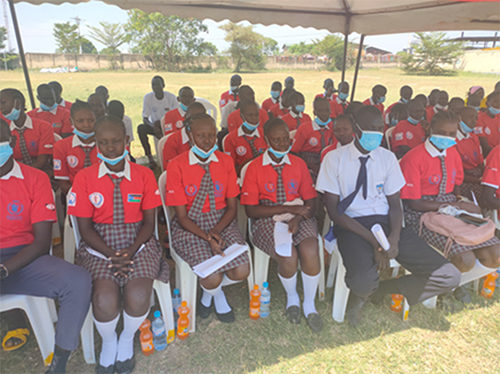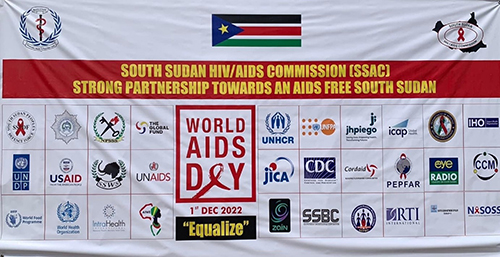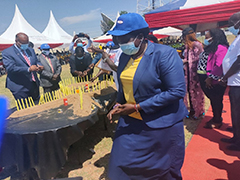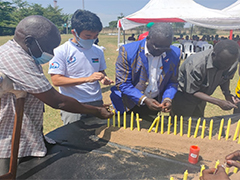JICA's Support for HIV/AID Mainstreaming Activities in South Sudan
2023.05.02

Background
South Sudan gained its independence on July 9, 2011, from Sudan after a long civil war that was preceded by the Comprehensive Peace Agreement (CPA) between the North and the South Sudanese. Unfortunately, soon after the Independence, the newest Country again found itself in another circle of conflicts which took place in 2013, 2016 and continuous clashes of the warring parties up to date. This resulted into displacement of thousands of people into the neighboring countries and Internally Displaced Peoples' (IDP) camps. Eventually this led to high rate of HIV infections. On the other hand, the peace agreement also gave an opportunity to several people from the neighboring countries to come to South Sudan mostly for business purposes, which in the same level led to a rise in big number of people contracting the disease. Meanwhile the civil wars caused destruction of important infrastructures further contributing to disruption of the health systems.
Given this fact, it is then clear that HIV infection rate is hard to determine across the country due to the difficulty to collect accurate data although the Ministry of Health estimates that approximately 3%, which is around 300, 000 of the adults have contracted the virus. Only 3000 people out of the estimated figures have the access to HIV/ AIDS treatment while the majority are still unable to access because of poor health infrastructures in the country. The government draw a National Strategic Plan that aims to reflect HIV/AIDS responses in South Sudan despite of the challenges of continued conflict.

South Sudan AIDS Commission (SSAC) is the main driver of the strategic plan to coordinate the fight against HIV/AIDS in the country through collaborative work with partners to fight the epidemic. In the 2020 to 2021, Considering the breakout of the COVID 19 in China and its spread all over the world, HIV/ AIDs situation has been made worse as awareness activities were reduced and the affected got no or little access to the medical services. In that regard to successfully carry out our HIV/AIDS activities, there was need to integrate COVID-19 National preventative measures into the planned activities to achieve objectives.
As Japan International cooperation Agency (JICA) started supporting SSAC since 2016 and has been working together in mainstreaming HIV/AIDS as crosscutting issues within its programs in South Sudan through awareness raising, sensitization workshops and commemoration of International World AIDS day. These activities usually cover basic understanding about the epidemic and prevention methods and encourage people to know their HIV status by testing so that those affected enrolled for treatment. These are some of the important interventions undertaken by JICA and SSAC with the guidance by the Ministry of Health to fight and reduced HIV new infections and AIDS negative impact in the country. HIV/AID is an obstacle to development in that the people living with the virus are not only unable to work but will also require medical care.
Achievements of JICA in collaboration with SSAC and International Partners on HIV/ AIDS
Challenges faced during HIV/AIDS response:
Way forward:
Candle Lighting During World Aids Day Commemoration


scroll